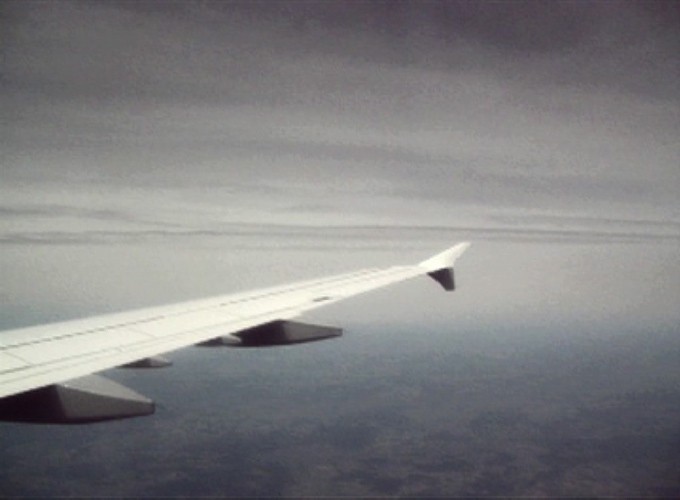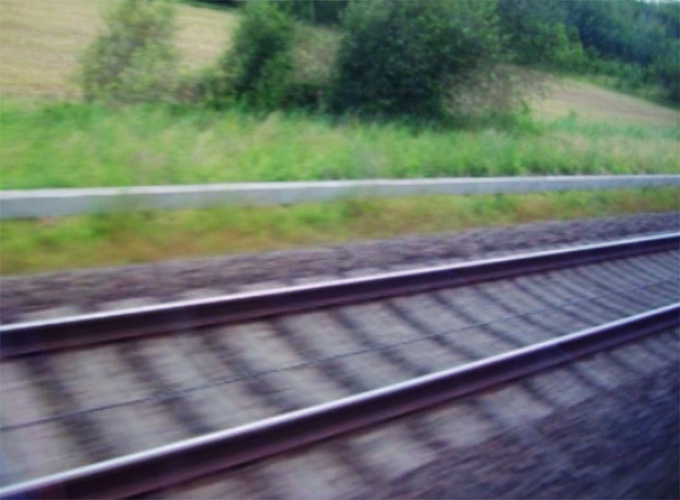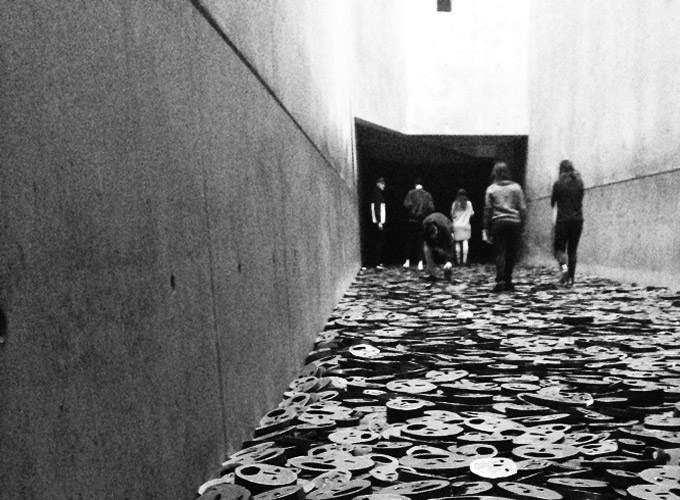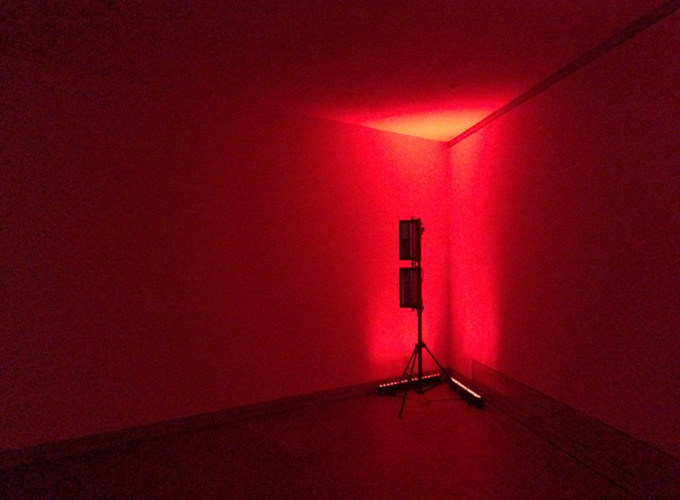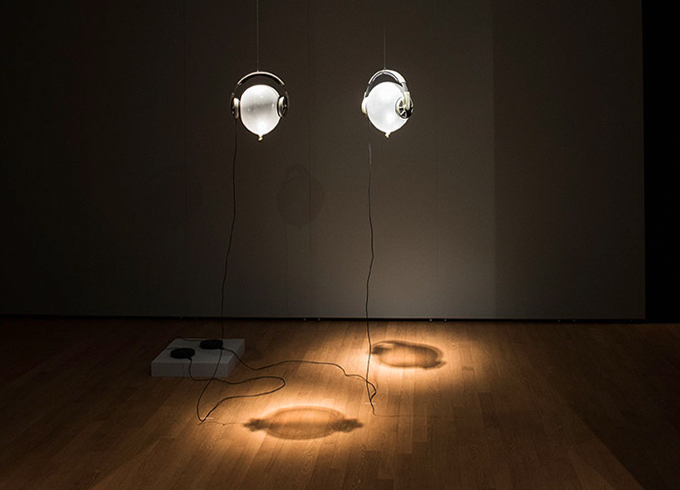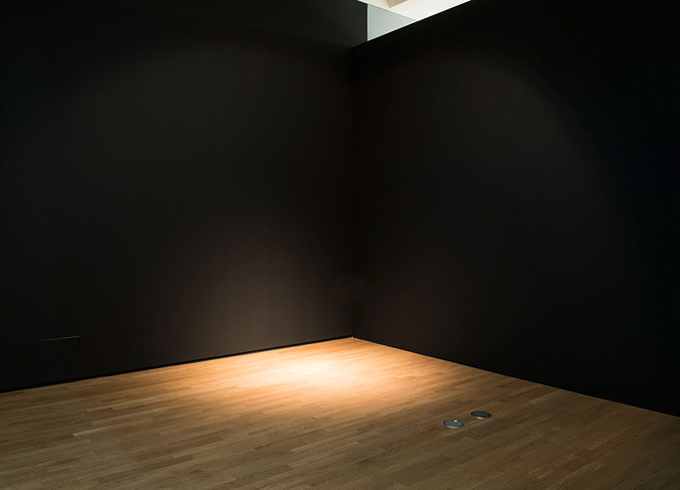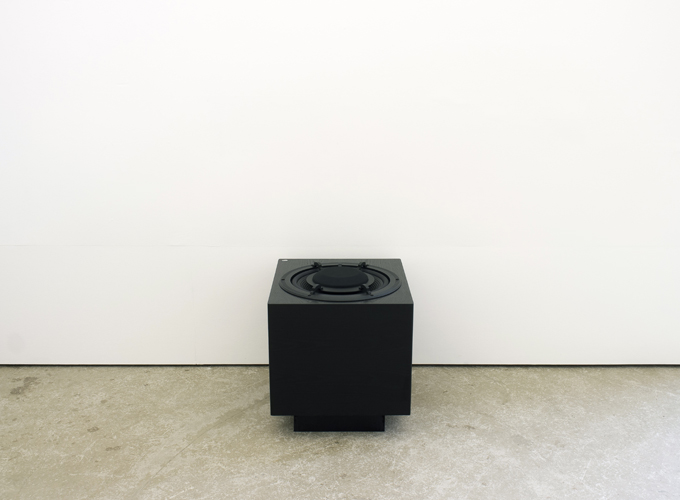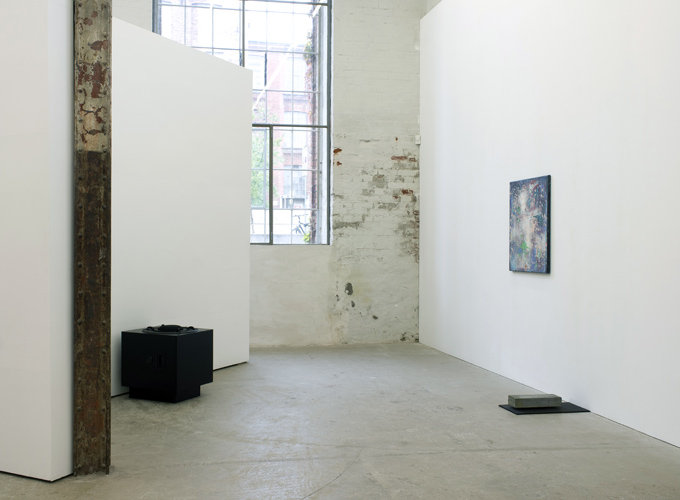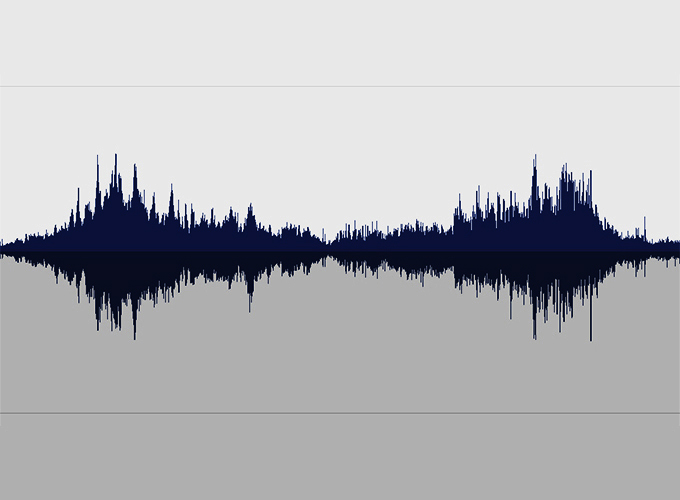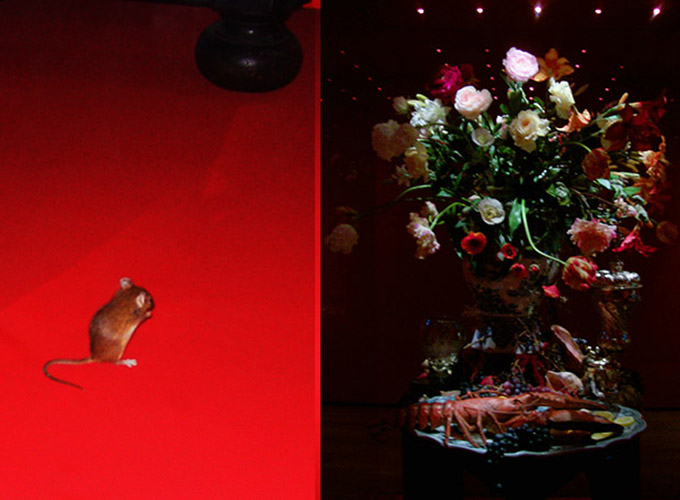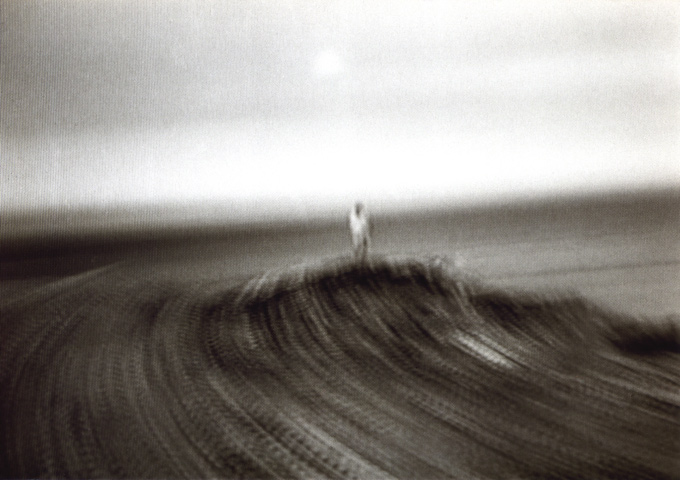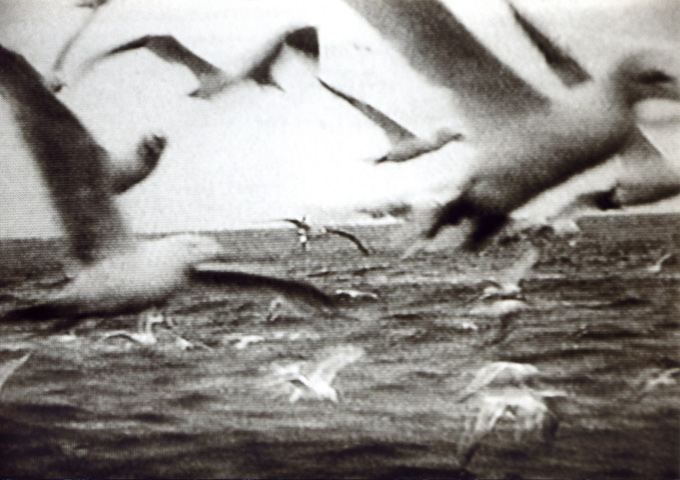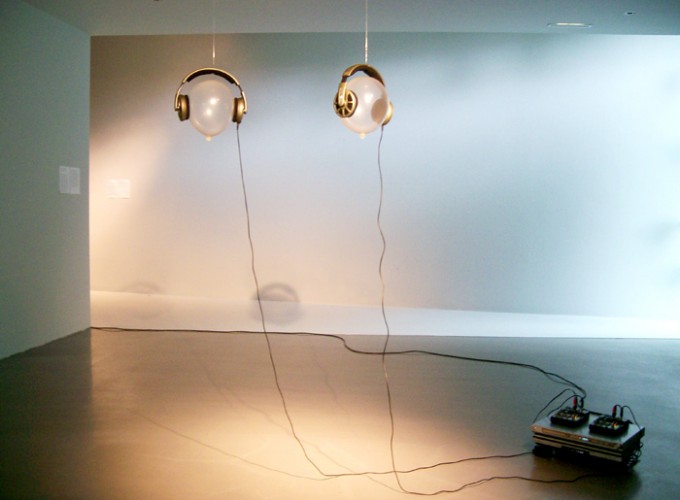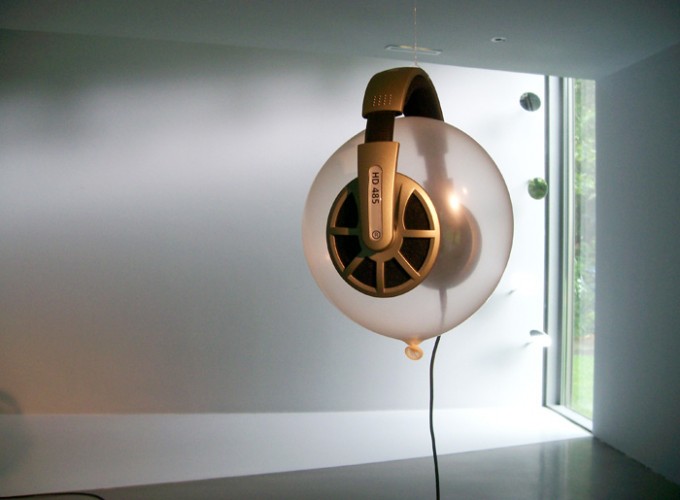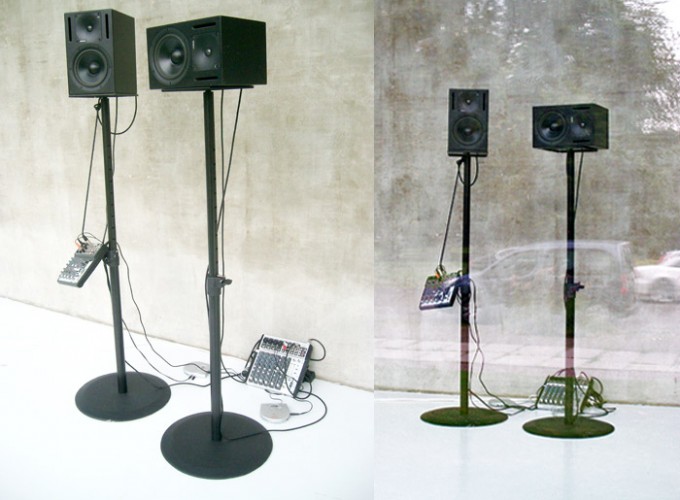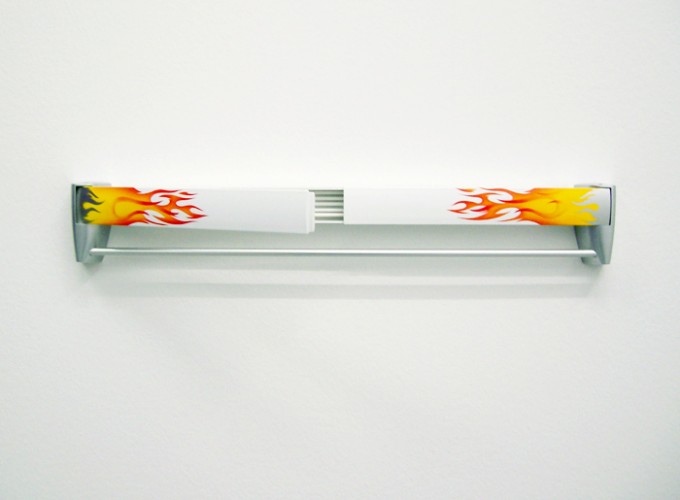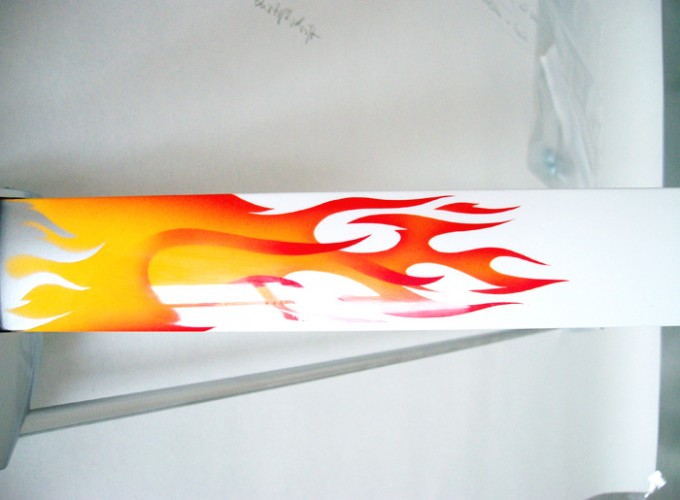LH 412 is a video/sound performance (i.p. installation), what shows on-screen the slowly and reduced changes of the sky during a flight above the clouds, while CFM live modulates the audio track of the recorded sequence. Out of the densly monotone noise, which accompanies every plane trip, sound overtones and harmonics and a vibrant bass.
Festival Resonanzen Leipzig 2012, Raw Chicks R19 Berlin 2013, The Global Composition Dieburg/Darmstadt 2018
ICE 2356 is like LH 412 an audio-visual performance, wich adresses the constant noise and hidden sounds, tones and overtones, that accompany any travel by train.
The Global Compositions / Dieburg/Darmstadt 2018
“The Jewish Museum Berlin is exhibiting res·o·nant – a walk-through light and sound installation by the Düsseldorf conceptual artist Mischa Kuball. Kuball created the installation specially for the new exhibition space on the lower ground floor of the Libeskind building.
As an important element of the installation, several loudspeakers, distributed throughout the room, loop a series of 60-second-long sound clips – so-called Skits – which were composed specially for res·o·nant by more than 50 musicians.” JMB
Another Floor – Steel Leaves is a 60 sec composition which is made out of recordings of people walking on the steel slices of Menashe Kadishman´s installation “Schalechet” or “Fallen Leaves” in the Memory Void – another created empty space in the Jewish Museum
res·o·nant, Jewish Museum, Berlin 2018/19
Zwei Sound-Installationen für die Ausstellung “Gedanken Raum Geben”:
Brandung ist ein Audiosignal dessen Quelle unsichtbar bleibt und das erst hörbar wird, wenn es auf ein Gegenüber trifft. Sie beschäftigt sich mit Gedanken als Form und den verschiedenartigen Gedanken die beim Hören von Meeresrauschen auftauchen können. Mit der Vorstellung von Freiheit, Weite und Romantik, ebenso wie mit Erinnerungen an eigene Begegnungen mit dem Meer. Das Blau. Die unergründliche Tiefe. Sanfte Wellen und peitschende Gischt. Schöne sowie beunruhigende Bilder vom Meer mit historischen und aktuellen Bezügen.
Die Klangskulptur 4 Beats per Breath III bestehend aus Kopfhörern und Luftballons, spürt den steten Rhythmus auf, der uns ein Leben lang mit der Außenwelt verbindet – der Atem. Er versorgt das Gehirn mit Sauerstoff und ermöglicht so unsere Existenz. Körperlich und geistig. Der Atemrhythmus zeigt Lebendigkeit an und mit seiner Intensität auch in welcher emotionalen Verfassung wir sind. Im Latainischen hat anima die Doppelbedeutung „Seele“ und „Atem“.
Gedanken Raum Geben, GRASSI Museum, Leipzig 2017
Photos by Esther Hoyer
The Drop is an audio-sculpture which focuses on the sound of one single drop falling in a well in different states – big and haevy, small with light noise, very far with numerous echoes. Deep. Playfull. Down and backwards.
mischen. ASPN gallery Leipzig 2014
With friendly support of ME geithain
Still Live / Frontier / Distant refer to the musical selection, wich the Grassi Museum for Angewandte Kunst assigns as acustic backing to the specific eras. The encountered backround music gets processed and deconstructed by CFM, so that an immedeate reference to the object shown in the room originates.
„Still Live“ responds with Baroque music, insects and rustling mice to the still life in the collections presentation. „Distant“ captures only a few single tones from the minnesong, wich fade away as echoes in the rooms and thematize the elusivness of an adored person like the original. For the Chinoserien „Frontier“ adapts an asian melody to a sometimes disharmonious cembalo-loop and reflects on the desire to own a piece of paradies.
Since 2015 „Still Live“ and „Frontier“ are part of the muesum collection and permanent exhibition for Angewandte Kunst.
Object is Meditation and Poetry / GRASSI Museum 2015
Split Second One and Split Second Two are part of a series of analog photographed screen shots, which show scenes from nature documentaries.
Collection Staufenbiel
4 Beats per Breath II besteht aus zwei Luftballons mit Kopfhörern, aus denen Atemgeräusche mit verschiedener Intensität zu hören sind. 4 Beats bezieht sich auf die Arbeit Al Fine II, die sich mit dem Herzrhythmus als kleinste musikalische Einheit beschäftigt. Die Herztöne – zwei Töne, die in Abhängigkeit von Situationen und den menschlichen Stimmungen Unterschiede in Lautstärke, Tempo und Tonhöhe aufweisen. Ebenso der Atem, der in unterschiedlicher Intensität ein und aus geht. Das Herz kann nur schlagen, wenn der Mensch atmet und das Gehirn mit Sauerstoff versorgt wird. Dabei gilt für den normalen, ruhigen Herz-Atem-Rhythmus eines Menschen annähernd das Verhältnis 4:1 – vier Herzschläge pro Atemzug.
Der Atemrhythmus steht in unmittelbarer Verbindung zum Herzrhythmus. Jede/r hat seinen eigenen. Es wechseln sich Geräusche des Atmens mit Geräuschen ab, die für Klangsituationen bzw. starke Stimmungsbilder stehen. Die Luft im Ballon ist der Atem der Künstlerin.
Neumann84 / Eyebeam New York 2012
Cage 100 – Opening spaces for action / GfZK Leipzig 2012
Al Fine II beschäftigt sich mit dem Herzrhythmus als kleinste musikalische Einheit – Zwei Töne, die in Abhängigkeit von Stimmungen, Unterschiede in Lautstärke, Tempo und Tonhöhe aufweisen. Zum Beispiel Gelassenheit – gleichmässiger Atem und ruhiger Herzschlag finden sich in der musikalischen Ausgeglichenheit des Andante (gehend, ruhig, etwas langsam) wieder. Bei Wut zeigt sich das rasende Herz, das betonte Ausatmen und die mitunter laute Stimme im Fortissimo (sehr stark, sehr laut) und seiner Steigerung zum Fortefortissimo (so stark wie möglich). Ein von Trauer träges, schweres Herz, bringt ein Lacrimoso (tränenreich, klagend) und Adagio ( langsam) hervor, Freude ein beschwingtes Allegro (heiter, lustig, schnell).
Der menschliche Körper als Klangkörper trägt die kleinste musikalische Einheit stets in sich – die Herztöne. Die Veränderlichkeit der Klangfarbe und Intensität der beiden Töne, ist von der emotionalen Stimmung, der mit ihr verbundenen Anspannung der Muskulatur und dem Körperbau eines Menschen abhängig. Eine unhörbare Komposition entsteht, wenn Menschen aufeinander treffen.
Cage 100 – Opening spaces for action / GfZK Leipzig 2012
Aerofix 100 S is a pimped foldout wall-clothes dryer. The airbrush on this household appliance asks: Are there such things as female and male materials and items, do objects have a gender?
Puzzle / GfZK Leipzig 2010
100 Tage Kunst / Ballhaus, Düsseldorf 2011
REVELATION / Karlin Studios, Prag 2014
Object is Meditation and Poetry / GRASSI Museum, Leipzig 2015
